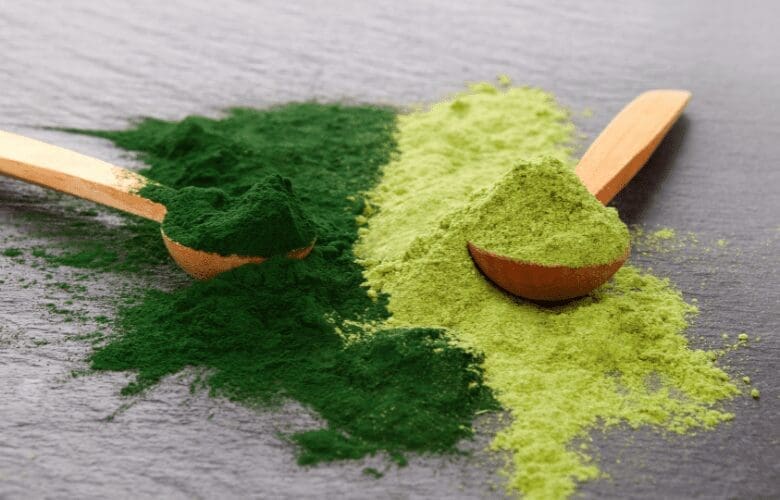How Adaptogens Can Improve Your Health and Well-Being
We live in a world where stress and anxiety have become an inevitable part of our daily lives. Whether it’s work-related stress, financial worries, or personal issues, stress and anxiety can take a serious toll on our physical and mental health. Chronic stress can lead to a host of health issues, including chronic fatigue, brain fog, fuzzy thinking, aches and pains, cognitive decline, irritability, mood swings, anxiety, depression, and insomnia. If you are struggling with any of these symptoms, you may want to consider adding adaptogens to your wellness routine.
So, what are Adaptogens?
Adaptogens are natural substances, such as herbs or mushrooms, that are believed to help the body adapt to stress and restore balance. They have been used for centuries in traditional medicine practices, such as Ayurveda and Traditional Chinese Medicine. Adaptogens are thought to work by supporting the body’s stress response and regulating the levels of stress hormones, such as cortisol. They are believed to help improve energy levels, reduce fatigue, boost cognitive function, and support immune function. Some common adaptogenic herbs include ashwagandha, rhodiola, ginseng, holy basil, cordyceps, and maca.
Types of Adaptogens
There is no definitive answer to the number of types of adaptogens, as new herbs and natural substances with adaptogenic properties are still being discovered and researched. However, there are several well-known and commonly used adaptogenic herbs that have been studied extensively and are widely used in traditional medicine and modern supplements. Some of the most popular adaptogenic herbs include:
Ashwagandha
Ashwagandha, or Withania somnifera, is an adaptogenic herb that has been used in traditional Ayurvedic medicine for centuries. It is native to India, Pakistan, and Sri Lanka, and is known for its stress-relieving benefits, improved sleep quality, cognitive function, and immune system support. Ashwagandha works by modulating the body’s stress response, reducing the levels of cortisol, which is the hormone that is released during times of stress. It is available in various forms, including capsules, powders, and teas.
Rhodiola
Rhodiola is an adaptogenic herb that grows in cold regions of the world, such as Siberia and northern Europe. It is well-known for its ability to improve cognitive function, reduce brain fog, enhance memory, and learning. Rhodiola works by increasing the levels of neurotransmitters, such as dopamine and serotonin, in the brain, which play a crucial role in regulating mood, motivation, and cognitive function. Additionally, Rhodiola can boost physical performance, reduce fatigue, and fight off inflammation and oxidative stress.
Ginseng
Ginseng is an adaptogenic herb that is known for its ability to boost energy levels, reduce fatigue, and improve mood, and cognitive function. It is available in different forms, including American, Asian, and Siberian ginseng.
Asian or Panax ginseng is the most well-known and widely used type of ginseng. It has been traditionally used in Chinese medicine for centuries and is believed to provide various health benefits, including improving cognitive function, reducing stress, and increasing energy levels.
Holy Basil
Holy Basil, also known as Tulsi, is an adaptogenic herb that is native to India and Southeast Asia. It is known for its stress-relieving benefits, anti-inflammatory and antioxidant properties, and antimicrobial properties. Holy Basil works by modulating the body’s stress response, reducing the levels of cortisol, which is the hormone that is released during times of stress. It is available in various forms, including capsules, tinctures, and teas.
Cordyceps
Cordyceps is an adaptogenic fungus that is native to China, Tibet, and Nepal. It is known for its ability to improve energy, endurance, and athletic performance. Cordyceps works by increasing the body’s production of ATP, which is the primary source of energy for the cells in the body. It can also boost the immune system and fight off inflammation and oxidative stress. Cordyceps is available in various forms, including tinctures, capsules, powders, and teas.
Maca
As an adaptogen, maca root is believed to help the body adapt to stress and promote overall well-being. It works by supporting the hypothalamus-pituitary-adrenal (HPA) axis, which is responsible for regulating the body’s stress response. By supporting this system, maca root can help regulate cortisol levels, reduce stress and anxiety, and promote a sense of calm.
In addition to its stress-relieving benefits, maca root has also been shown to have a range of other health benefits. It is a rich source of vitamins and minerals, including vitamin C, iron, and zinc. It has also been shown to improve energy levels, enhance athletic performance, and improve sexual function in both men and women.
Licorice Root
Licorice root has been traditionally used in Chinese medicine as an adaptogen. As an adaptogen, it is believed to help the body cope with stress by regulating cortisol levels, supporting adrenal function, and enhancing immune system function. Licorice root also has anti-inflammatory and antioxidant properties. While there is some evidence supporting these benefits, more research is needed to fully understand the mechanisms behind licorice root’s adaptogenic effects and its potential uses in treating various health conditions.
Health Benefits of Adaptogens
Adaptogens are a powerful tool for individuals struggling with chronic conditions resulting from stress and poor sleep. These natural remedies offer a host of benefits, including stress relief, improved sleep quality, enhanced cognitive function, reduced pain and inflammation, and improved mood and anxiety.
- Stress Relief: Adaptogens help reduce the levels of cortisol, the hormone released by the body during times of stress. High levels of cortisol can lead to a range of health issues, including anxiety, depression, and insomnia. Adaptogens help to regulate cortisol levels, reducing the negative effects of stress on the body.
- Improved Sleep Quality: A good night’s sleep is essential for optimal physical and mental health. Adaptogens can help promote better sleep by calming the nervous system and reducing anxiety.
- Cognitive Function: Adaptogens can improve cognitive function by reducing brain fog and improving focus and concentration. The herb rhodiola is particularly effective at enhancing memory and learning, making it a valuable tool for anyone looking to boost their mental acuity.
- Pain and Inflammation: Adaptogens can also be an excellent natural remedy for individuals suffering from chronic pain, as they help reduce inflammation and pain in the body.
- Mood and Anxiety: When it comes to mood and anxiety, adaptogens such as ashwagandha have been shown to reduce symptoms of anxiety and depression, promoting a more balanced and peaceful state of mind.
How to Incorporate Adaptogens into Your Wellness Routine
If you’re interested in adding adaptogens to your wellness routine, there are several ways to do so. One of the most common ways is to take them in supplement forms, such as capsules, powders, or tinctures. Many adaptogenic herbs can also be brewed into teas, which is a relaxing and comforting way to consume them.
- Supplements: Adaptogens are available in supplement forms, such as capsules, tablets, or tinctures. These can be convenient for taking on the go or when you don’t have access to fresh herbs. When choosing an adaptogenic supplement, it’s important to do your research and choose a reputable brand. Look for products that are third-party tested for purity and potency, and always follow the recommended dosage instructions.
- Teas: Many adaptogens can be consumed as teas, which can be a soothing way to incorporate them into your daily routine. To make an adaptogenic tea, steep 1-2 teaspoons of dried herb in hot water for 10-15 minutes, then strain and enjoy.
- Powdered herbs: Some adaptogens are available in powdered form, which can be added to smoothies, oatmeal, or other foods. This can be a convenient way to incorporate adaptogens into your diet without having to take pills or drink tea.
- Culinary uses: Many adaptogens can be used in cooking, such as adding ashwagandha to a stir-fry or using turmeric in a curry. This can be a tasty way to incorporate adaptogens into your diet while enjoying their health benefits.
Remember that adaptogens work best when used as part of a holistic approach to health, including a healthy diet, regular exercise, and stress-reducing activities. Always consult with a healthcare provider before using any new supplements, especially if you have underlying health conditions or are taking medications.
Choosing the Right Adaptogen for You
Choosing the right adaptogen can depend on a variety of factors, including your individual health goals and any specific health concerns you may have. Here are some tips to help you choose an adaptogen:
- Identify your health goals: Before choosing an adaptogen, it’s important to identify your health goals. For example, are you looking to reduce stress and anxiety, improve cognitive function, boost energy levels, or support immune function? Different adaptogens may be better suited to different health goals, so it’s important to choose one that aligns with your specific needs.
- Research different adaptogens: Once you have identified your health goals, research different adaptogens to find one that is best suited to your needs. Look for studies and scientific evidence that support the effectiveness of the adaptogen, and consider consulting with a healthcare provider to get personalized advice.
- Consider your individual needs and health concerns: In addition to your health goals, consider any specific health concerns or conditions you may have. For example, if you have high blood pressure, you may want to avoid adaptogens that can increase blood pressure, such as licorice root. Alternatively, if you have an autoimmune condition, you may want to choose an adaptogen that can support immune function, such as reishi mushroom.
- Start with a low dose: When trying a new adaptogen, it’s important to start with a low dose and gradually increase over time. This can help you determine how your body responds to the adaptogen and prevent any potential side effects.
- Be patient: Adaptogens work by supporting the body’s natural ability to adapt to stress, so they may take time to produce noticeable effects. Be patient and consistent with your use of the adaptogen, and give it time to work its magic.
Final Thoughts
Adaptogens are a natural and effective way to manage stress and improve overall health. They offer a range of health benefits, including stress relief, improved sleep quality, cognitive function, pain and inflammation reduction, and improved mood and anxiety. Remember, it’s always best to consult with a healthcare provider before using any new supplement or herb, especially if you have underlying health conditions, are pregnant, or are taking medications. By incorporating adaptogens and other healthy lifestyle habits into your routine, you can achieve optimal physical and mental health.












